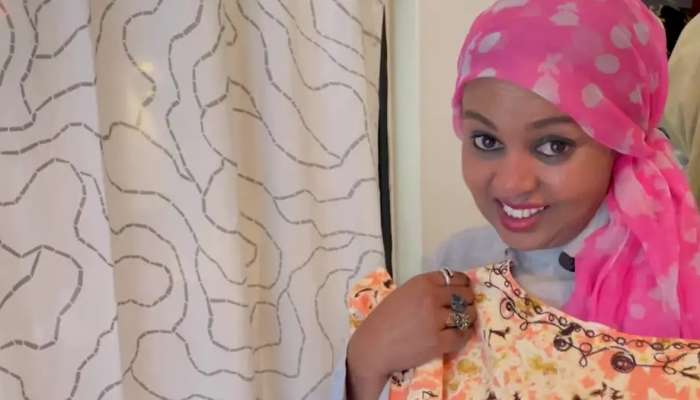
Nairobi: President William Ruto has announced plans to spearhead an initiative that would ensure all military and police uniforms, as well as other clothing items, are exclusively produced within Kenya.
"I have already issued instructions going forward: All uniforms, shoes, and other pieces and items of clothing that are required by all our security services must be manufactured locally by our companies and made by our Kenyan young people," Ruto said at the recent passing-out parade of 2,664 forest rangers.
Kenya's textile companies, cotton farmers, garment workers, small businesses and the public reacted with excitement and optimism. Many expect the initiative to revitalize the country's struggling textile industry and have positive ripple effects on the overall economy.
Nairobi-based fashion designer Amos Mwangi sees the move as an opportunity as fashion in Kenya is changing: "People are starting to embrace what we call signature. So, it's a good thing," Mwangi said.
Boost for local production
Kenya currently relies on textile imports, with over 90% coming from countries such as China, India, Pakistan, Tanzania, and Turkey. But investment and finance expert Caroline Karugu believes there's no need to import fabrics when Kenya can produce them.
"What I am wearing is made here in Kenya — my jacket is made in Kawangware. These fabrics need not be imported," Karugu told DW.
Tejal Dodhia, the CEO of Thika Cloth Mills, has invested in advanced machinery to meet growing demand. She, too, can now envision a future without such a high rate of imports.
"Everyone knows how important this is ... I hope the country will treasure this [initiative]. Let's all push to buy Kenya, build Kenya," Dodhia told DW.
Potential drawbacks
However, the president's new directive raises questions over whether Kenya can meet most of the local demand for textile products. Beyond army boots and police uniforms, most staples, like elsewhere in the world, come from textile manufacturers, mainly in Southeast Asia.
"As much as we would like to buy products made in Kenya, they are not all available here. So, some of the products will have to maybe come from China or India," consumer Anne Mutiso Mwikali told DW.
Dodhia hopes her business, which is already running at full capacity, can become a catalyst in furthering Kenyan brands in textile sectors dominated by imports. She is confident her investment will pay off.
"If we don't put in the new machines now, we will not be able to cater to the market demands."
Pre-loved clothing
Kenya's booming used clothing sector poses another challenge to these changes. Each year, the country imports close to 200,000 tons of second-hand items.
But Phyllis Wakaiga of the Kenya Association of Manufacturers sees opportunities for growth and development, suggesting that used clothing traders could shift their focus to locally-made clothing.
"We have an opportunity where we're able to sell these goods in our local market. So, they would replace the product [used clothes] and sell the locally manufactured goods," Wakaiga told DW.